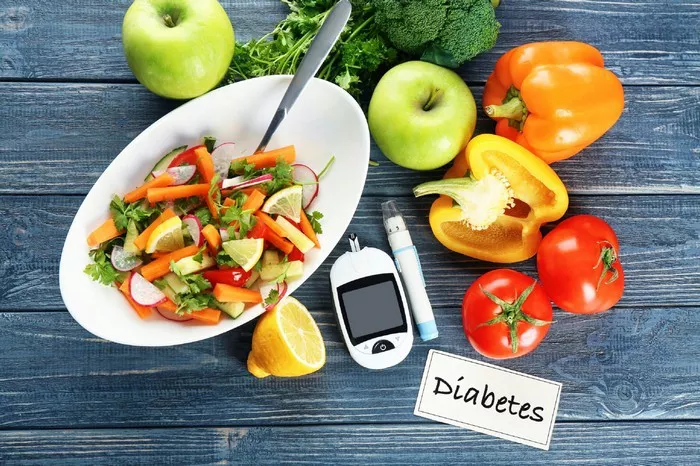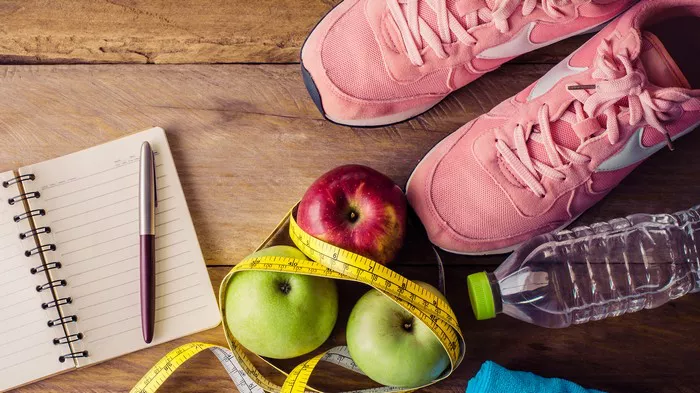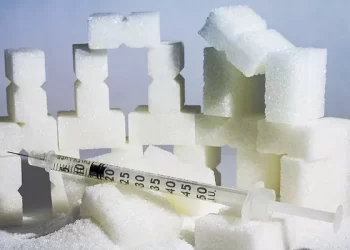Prediabetes is a condition where blood sugar levels are higher than normal, but not yet high enough to be diagnosed as type 2 diabetes. It is a serious health concern as it increases the risk of developing type 2 diabetes, heart disease, and stroke. While genetics, age, and other factors play a role in prediabetes, one of the most controllable aspects of managing this condition is diet. Making the right food choices can help regulate blood sugar levels and reduce the risk of progressing to full-blown diabetes. This article discusses what foods are not good for prediabetes, offering insight into how certain foods can negatively impact blood sugar control and what changes can help manage the condition more effectively.
Understanding Prediabetes
Before delving into the specific foods that are detrimental to prediabetes, it is important to understand the condition itself. Prediabetes occurs when the body’s insulin response becomes impaired, meaning that glucose (sugar) in the bloodstream is not efficiently absorbed by cells for energy. As a result, blood sugar levels rise, although they are not yet high enough to be classified as diabetes. This stage of impaired glucose tolerance is considered a warning sign and provides an opportunity for intervention through lifestyle changes, including diet, exercise, and weight management.
A diagnosis of prediabetes can be made through various tests, such as:
Fasting blood sugar test: A fasting blood sugar level between 100 and 125 mg/dL suggests prediabetes.
Oral glucose tolerance test (OGTT): A two-hour blood sugar level between 140 and 199 mg/dL indicates prediabetes.
Hemoglobin A1C test: An A1C level between 5.7% and 6.4% is consistent with prediabetes.
A diagnosis of prediabetes doesn’t mean you will definitely develop type 2 diabetes, but it does significantly increase the risk. Fortunately, with the right lifestyle adjustments, particularly in diet, it is possible to reverse prediabetes or at least prevent it from progressing.
How Diet Affects Blood Sugar and Insulin Sensitivity
The key to managing prediabetes lies in improving the body’s ability to process glucose and maintaining insulin sensitivity. Insulin is a hormone produced by the pancreas that helps regulate blood sugar by allowing glucose to enter cells. In people with prediabetes, the body’s cells are less responsive to insulin, a condition known as insulin resistance. As a result, the pancreas must work harder to produce more insulin to keep blood sugar levels in check.
Certain foods can exacerbate insulin resistance, causing blood sugar levels to rise more quickly than they should. On the other hand, foods that promote better insulin sensitivity can help keep blood sugar levels stable. Therefore, understanding which foods are not good for prediabetes is essential to managing the condition.
Foods to Avoid for Prediabetes
Refined Carbohydrates and Sugary Foods
Refined carbohydrates are a group of processed foods that have been stripped of most of their nutrients, including fiber. These include white bread, pasta, pastries, and many breakfast cereals. They cause a rapid spike in blood sugar, leading to an increase in insulin production. This not only affects blood sugar control but also worsens insulin resistance over time.
Why they are harmful: Refined carbs are digested quickly and turn into glucose in the bloodstream, causing a sharp increase in blood sugar. This quick spike results in an overproduction of insulin, which can further impair insulin sensitivity. Over time, this contributes to worsening blood sugar control and increases the risk of developing full-blown diabetes.
Examples of refined carbs and sugary foods to avoid:
White bread, white rice, and regular pasta
Pastries, cakes, and cookies made with refined flour
Sugary breakfast cereals
Soda, sugary drinks, and fruit juices with added sugars
Candy and chocolate with high sugar content
Fried Foods and Trans Fats
Fried foods and those high in unhealthy fats can contribute to weight gain and worsen insulin resistance. Trans fats, in particular, found in many processed foods, have been linked to increased inflammation and poor blood sugar control.
Why they are harmful: Trans fats increase levels of “bad” LDL cholesterol while lowering “good” HDL cholesterol. This imbalance not only raises the risk of heart disease but also negatively impacts insulin sensitivity. Fried foods, particularly those fried in unhealthy oils like hydrogenated vegetable oils, are also high in calories, contributing to obesity—another factor that exacerbates insulin resistance.
Examples of foods with unhealthy fats to avoid:
French fries, fried chicken, and deep-fried snacks
Fast food and packaged snacks such as chips, crackers, and cookies
Margarine, shortening, and commercially baked goods
Full-Fat Dairy Products
While dairy products can be part of a healthy diet, full-fat versions may contribute to increased insulin resistance due to their high saturated fat content. Diets high in saturated fats are associated with decreased insulin sensitivity, making it harder for the body to regulate blood sugar levels effectively.
Why they are harmful: Saturated fats found in full-fat dairy products can contribute to obesity and increased fat storage, especially around the abdominal area. This fat accumulation is linked to higher levels of insulin resistance and difficulty managing blood sugar.
Examples of full-fat dairy products to avoid:
Whole milk and cream
Full-fat cheese and yogurt
Butter
Sweetened Beverages
Sugar-sweetened beverages, including soda, sweetened coffee and tea, and energy drinks, are among the worst offenders for people with prediabetes. These drinks are high in added sugars, which lead to quick and substantial spikes in blood sugar levels. They provide little nutritional value and contribute to excess calorie intake, which can lead to weight gain.
Why they are harmful: The body processes the sugar in sweetened beverages quickly, leading to a rapid rise in blood sugar and insulin levels. This puts a strain on the pancreas and worsens insulin resistance over time. Moreover, sugary drinks often do not provide a feeling of fullness, leading to overeating and weight gain.
Examples of sweetened beverages to avoid:
Soda and cola
Sweetened fruit juices and sports drinks
Sweetened iced tea and energy drinks
Processed Meats
Processed meats, such as bacon, sausage, hot dogs, and deli meats, are often high in sodium, unhealthy fats, and preservatives. These foods can lead to an increase in blood pressure, inflammation, and the development of insulin resistance.
Why they are harmful: Processed meats are often high in saturated fats and salt, both of which can contribute to weight gain and high blood pressure, worsening the effects of prediabetes. The preservatives used in processed meats, such as nitrates, may also increase the risk of developing chronic diseases, including diabetes.
Examples of processed meats to avoid:
Bacon and sausage
Hot dogs and salami
Deli meats like ham, turkey, and bologna
Alcohol
Moderate to excessive alcohol consumption can negatively affect blood sugar control in people with prediabetes. While a small amount of alcohol may not cause significant harm, excessive drinking can lead to hypoglycemia (low blood sugar) or hyperglycemia (high blood sugar), depending on the type and amount consumed.
Why it is harmful: Alcohol interferes with the liver’s ability to release glucose into the bloodstream, which can lead to dangerously low blood sugar levels. Additionally, many alcoholic drinks are high in sugar and carbohydrates, contributing to blood sugar spikes.
Examples of alcoholic beverages to avoid:
Beer, especially sweetened or flavored varieties
Sweet cocktails with syrups or sugar-laden mixers
Liqueurs and wine coolers
High-Glycemic Fruits
Fruits are generally considered a healthy food choice due to their high vitamin, mineral, and fiber content. However, certain fruits have a high glycemic index (GI), meaning they cause a rapid rise in blood sugar levels when consumed. These include fruits that are high in natural sugars, such as tropical fruits.
Why they are harmful: High-GI fruits can cause blood sugar spikes, making it harder to maintain stable glucose levels. While fruit is an important part of a balanced diet, it’s crucial for individuals with prediabetes to choose lower-GI options.
Examples of high-GI fruits to limit:
Pineapple and watermelon
Mangoes and papayas
Grapes (in large quantities)
Packaged Snacks and Baked Goods
Packaged snacks and baked goods, such as cookies, chips, and cakes, are often loaded with added sugars, refined flour, and unhealthy fats. These foods are calorie-dense and offer little nutritional value, making them poor choices for individuals with prediabetes.
Why they are harmful: The combination of refined carbohydrates, unhealthy fats, and added sugars can lead to a rapid increase in blood sugar, making it difficult for the body to process glucose effectively. These foods can contribute to weight gain and worsen insulin resistance.
Examples of packaged snacks to avoid:
Store-bought cookies, cakes, and pastries
Potato chips and pretzels
Granola bars with high sugar content
Conclusion: Making Healthier Choices for Prediabetes
Managing prediabetes requires making informed and thoughtful decisions about what you eat. Avoiding foods that cause blood sugar spikes, such as refined carbohydrates, sugary foods, and processed meats, is essential to maintaining stable blood glucose levels and improving insulin sensitivity. Additionally, incorporating whole foods, lean proteins, healthy fats, and low-glycemic fruits can help manage prediabetes effectively.
By focusing on a balanced, nutrient-dense diet and making healthier food choices, you can prevent the progression of prediabetes into type 2 diabetes and improve your overall health. Consulting with a healthcare provider or a registered dietitian can also provide personalized advice and support to help you manage prediabetes and live a healthier life.
Related topics:
What Natural Foods That Are Good for Diabetes























